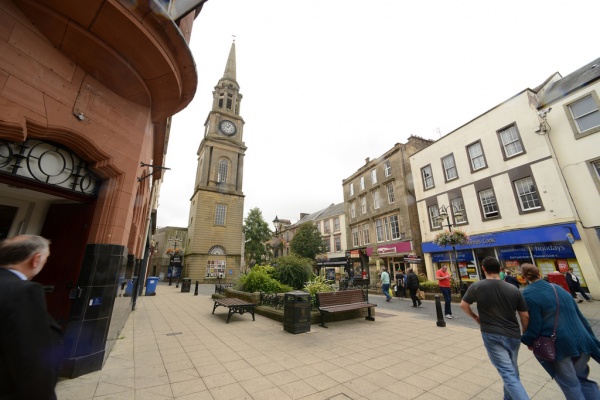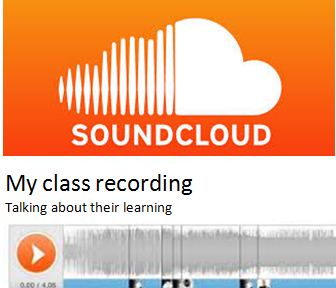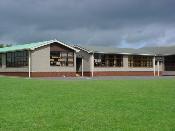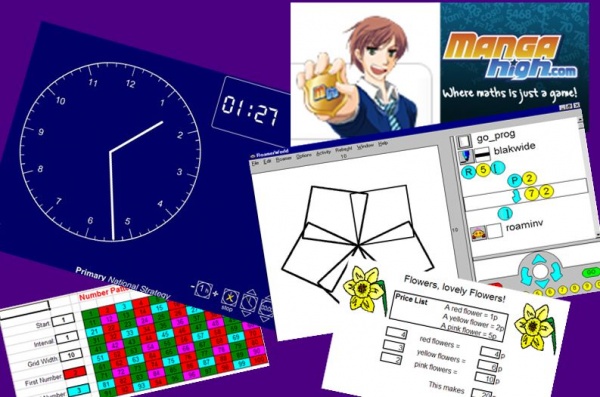 Malcolm Wilson, ICT Curriculum Development Officer in the Curriculum Support team of Falkirk Council Education Services, presented a session to teaching staff giving a hands-on opportunity to explore a range of interactive software and online tools to support teaching numeracy and maths at second level.
Malcolm Wilson, ICT Curriculum Development Officer in the Curriculum Support team of Falkirk Council Education Services, presented a session to teaching staff giving a hands-on opportunity to explore a range of interactive software and online tools to support teaching numeracy and maths at second level.
Resources explored in this session included:
RoamerWorld – a simulated programmable on-screen robot. It is a graphical version of Logo. It provides concrete implementation of shape, position and movement abstract concepts. It has 16 in-built curricular-related activities.
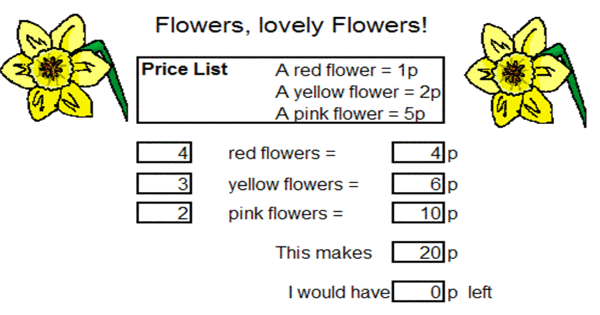 Number Magic – spreadsheets to help with a series of calculations that need to be repeated often. Once they are set up they can be used to explore the effect of changing one number on the others. The data can also be displayed very easily as a graph or chart. Number Magic has a number of in-built curricular examples – in Blue level exercises folder.
Number Magic – spreadsheets to help with a series of calculations that need to be repeated often. Once they are set up they can be used to explore the effect of changing one number on the others. The data can also be displayed very easily as a graph or chart. Number Magic has a number of in-built curricular examples – in Blue level exercises folder.
National Numeracy Strategy Resources – Interactive flash resources to support mathematics available on every Falkirk primary school network PC in shared documents. Each has an associated set of instructions. These Flash files can be dragged into an open SMART Notebook page (or just used in an Internet browser). These included tell-the-time, thermometer, shape-sorting, symmetry, fractions and angle resources.
SMART Notebook resources – there are many tools and mathematics-specific resources in the SMART Notebook Gallery Essentials for Educators, and there is a huge number of pre-created SMART Notebook resources in the shared documents folders of every Falkirk primary networked PC.
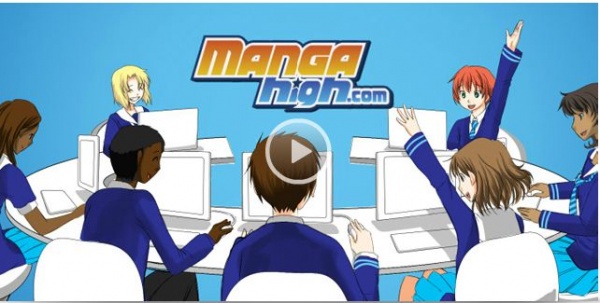 Manga High – free online games-based maths teaching resource aimed at 7-16 year-olds. This combines development of maths skills with video game format games. The teacher selects specific maths/numeracy areas and level within the Curriculum for Excellence which assigns pupils teaching activities and game. The teacher can get reports on progress of individual pupils.
Manga High – free online games-based maths teaching resource aimed at 7-16 year-olds. This combines development of maths skills with video game format games. The teacher selects specific maths/numeracy areas and level within the Curriculum for Excellence which assigns pupils teaching activities and game. The teacher can get reports on progress of individual pupils.
Other online resources included:
Primary Games Arena – a wide range of free online games matched to developing different numeracy and mathematics skills.
Math is Fun – inlcudes games and a dictionary of mathematcis concepts for pupils.
Maths in the City – providing ideas for taking learning in mathematics and numeracy outside
Sumdog – numeracy actvities where pupils can compete with others in a safe environment
Wolfram Alpha – described as a computational search engine!




